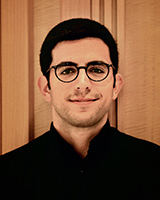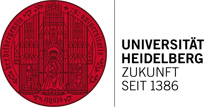Dr. Berk Aykut

Dr Berk Aykut studied human medicine at Heidelberg University from 2007 to 2014. In 2015 he earned his doctoral degree at the German Cancer Research Center (DKFZ) under the supervision of Prof. Ana Martin-Villalba and began to train as a surgeon under Prof. Markus W. Büchler at Heidelberg University Hospital’s Department of Surgery. In 2016 Dr Berk Aykut accepted a post-doctoral position in the laboratory of Prof. George Miller at New York University (USA), where he researches the role of the immune system in pancreatic cancer.
The human body contains more than 1.000 different species of bacteria and fungi and carries more microbial genes than are found in the human genome. As such, the microbiome and its profound impact on various diseases including cancer, is receiving significant attention. While various studies were able to link commensal bacterial species to cancer growth, the role of fungi has not been elucidated. In a series of experiments conducted in mice and human samples, our team was able to show that fungi expanded more than 3.000-fold in pancreatic cancer*. One particular genus, Malassezia, was enriched in cancerous tissues and was found to travel to the pancreas through the pancreatic duct. Administering an antifungal drug to mice that harbor the same cancer-driving mutations seen in human patients reduced tumor growth. Similarly, repopulating the mice with Malassezia (but not with other fungi) accelerated tumor growth. Further experiments showed that Malassezia leads to activation of the complement cascade, which is part of the innate immune system. Activation of this cascade has been linked to tumor growth, because its pro-inflammatory pathways stimulate growth and motility and growth of cells. to These results show that not only are certain fungal species abundant in pancreatic cancer but also that modulating the fungal microflora presents a promising new therapy rationale for pancreatic cancer.
Interested in Dr. Aykut’s work? Contact him via berk.aykut@alumni.uni-heidelberg.de.

